Though the Vols lost control of their own destiny in Athens, the path forward is still fairly simple. Tennessee is 10th in the AP poll, just a few votes ahead of Miami at 11. But the Hurricanes and #13 SMU are headed toward a winner take all ACC title game, likely sending one to an automatic bid and one outside the field.
Meanwhile, there’s a healthy distance in votes between the Vols and Ole Miss at #9, a two-loss SEC pecking order I’d expect to remain in the playoff committee: Alabama, Georgia, Ole Miss, Tennessee.
There is, obviously, an argument for Tennessee to be rated higher than Alabama, but Georgia muddies those waters in a three-way tie. If the conversation is between Tennessee and Ole Miss, Arkansas becomes the season’s most important talking point, which is not a place we want to be.
If the AP poll continues to be a mostly fair representation of the playoff committee’s thinking too, 10th will really mean the first team out, with three conference champions behind us.
Which means the Vols need to move up one spot.
One thing about this bubble, as opposed to the basketball one: we should probably get used to it. In the SEC, the odds of any team pulling off something like what Oregon has done this year are certainly lower. And other than 1998, I’m not sure any Tennessee team would’ve come to mid-November feeling like an absolute playoff lock unless we’re going back to facing the 90s versions of Kentucky and Vanderbilt at the end of the year.
But any one spot will do, of course. Here’s how that can happen. This uses FPI’s projected lines, with three points for home field advantage. And it doesn’t include anything from the ACC or Big 12, with those leagues projected to get just one spot each.
Saturday, November 23
Indiana at Ohio State (-10.5) – 12:00 PM – Fox
How much would Ohio State have to win by to drop the one-loss Hoosiers behind the two-loss Vols? It’s more than 10.5 for sure. Four touchdowns? Five? The ol’ eye test gets real valuable here.
Ole Miss (-9) at Florida – 12:00 PM – ABC
While Tennessee’s strength of schedule gets no help from both NC State and Oklahoma being 5-5, here come the Gators. Back-to-back upsets in Gainesville would put Florida a win over 1-9 Florida State away from a 7-5 season against the nation’s toughest schedule. But more than that, they’d knock the Rebels out of the playoff conversation and create space for Tennessee before sundown on Saturday.
UTEP at Tennessee (-41.5) – 1:00 PM – ESPN+
See, nothing to it!
Kentucky at Texas (-24.5) – 3:30 PM – ABC
The first of a handful of “not very likelies” involving teams ahead of Tennessee. Most of the teams we need to lose are moderately favored one Saturday, and heavily favored the next. Any lookahead here from the Horns?
Penn State (-10) at Minnesota – 3:30 PM – CBS
Here’s Penn State’s toughest challenge left, as Vol fans turn their eyes and ears back to the ol’ 3:30 CBS kick. If the Nittany Lions get their boats rowed, whatever their best win is, it’s not Alabama.
Army at Notre Dame (-21) – 7:00 PM – NBC
Should Army pull the upset off, we’ll want to watch out for a scenario where Boise State is ranked above Tennessee and the Cadets finish undefeated. They’d also have to go through Tulane in the AAC title game to get there.
Alabama (-13.5) at Oklahoma – 7:30 PM – ABC
Overall, Tennessee’s resume benefits from wins by Alabama and Georgia. But either school picking up a third loss could also clear a path for two-loss Tennessee.
Friday, November 29
Mississippi State at Ole Miss (-25.5) – 3:30 PM – ABC
Not very likely, but Egg Bowl, so we’ll see.
Georgia Tech at Georgia (-19.5) – 7:30 PM – ABC
Not very likely, and even less Egg Bowl, but Georgia Tech is certainly the feistier opponent.
Saturday, November 30 (kickoff times TBD)
Tennessee (-9.5) at Vanderbilt
Gotta get this one right, or none of this matters.
Texas (-9.5) at Texas A&M
If A&M wins at Auburn this week, where they’re -2.5 in FPI, they can make their way to Atlanta with a win in this one. That could/should create a scenario where a 10-3 Aggies team who loses to Alabama is behind the Vols. Texas has just one loss, but from a resume standpoint should now clearly be behind Tennessee if they both finish with two. The Vols played Georgia closer in Athens than the Horns did in Austin, and again, Alabama.
Maryland at Penn State (-22.5)
Purdue at Indiana (-33)
A pair of unlikely Big Ten home upsets.
Notre Dame (-7) at USC
Though you’ll probably have to wait until the end of next week for it, if you’re looking for just one upset, statistically this is the most likely scenario. The Trojans have played seven one-possession games so far this year, an insane amount, and took Penn State to overtime in LA. Since losing to NIU and beating Louisville 31-24 in September, Notre Dame has won every game by at least three possessions. It’s an emotional back-to-back test for the Irish, but they passed with flying colors against Navy earlier this year.
Auburn at Alabama (-20.5)
Hugh Freeze coaches well against the Tide, but this would be an all-timer.
Most Likely Upsets by FPI
- Notre Dame (-7) at USC November 30
- Ole Miss (-9) at Florida November 23
- Texas (-9.5) at Texas A&M November 30 (probably needs an additional A&M loss to Auburn or in Atlanta)
- Penn State (-10) at Minnesota November 23
Either way, you’ve got incredibly relevant football to Tennessee in every television window this Saturday, plus two next Friday, and then perhaps a last/best chance on Saturday afternoon/evening. The Vols have to do their part. But we’ve still got plenty of chances to see someone else do theirs.
Go Vols.
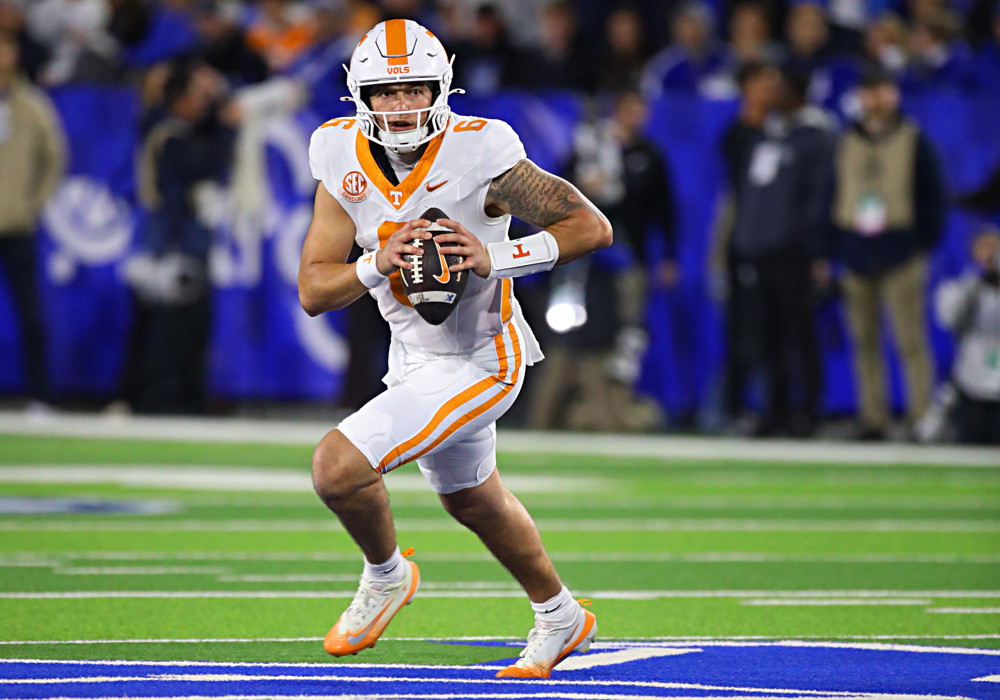
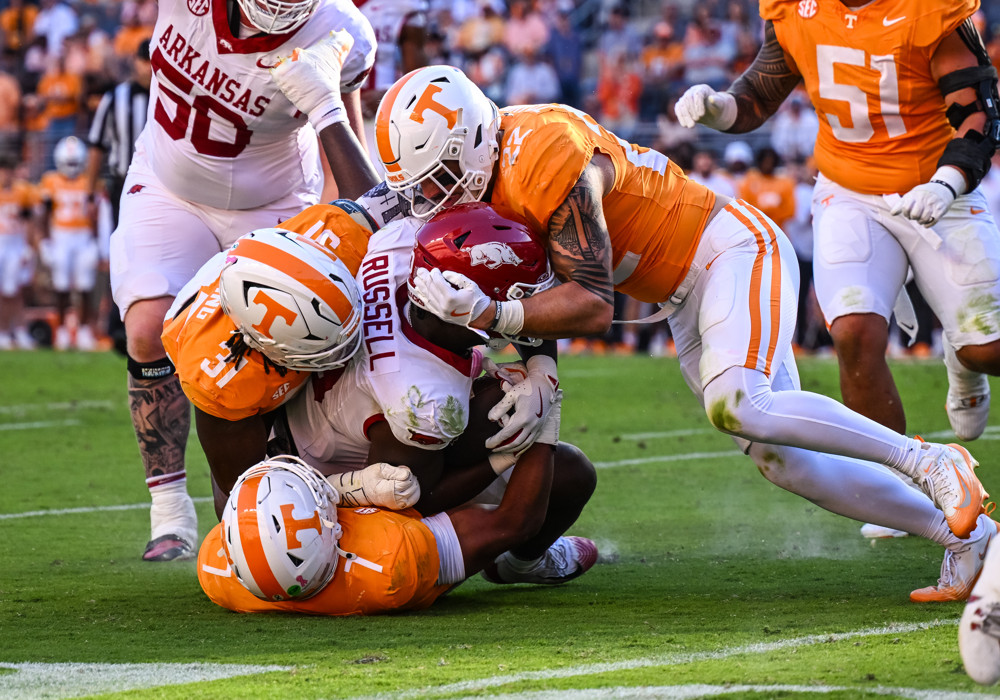
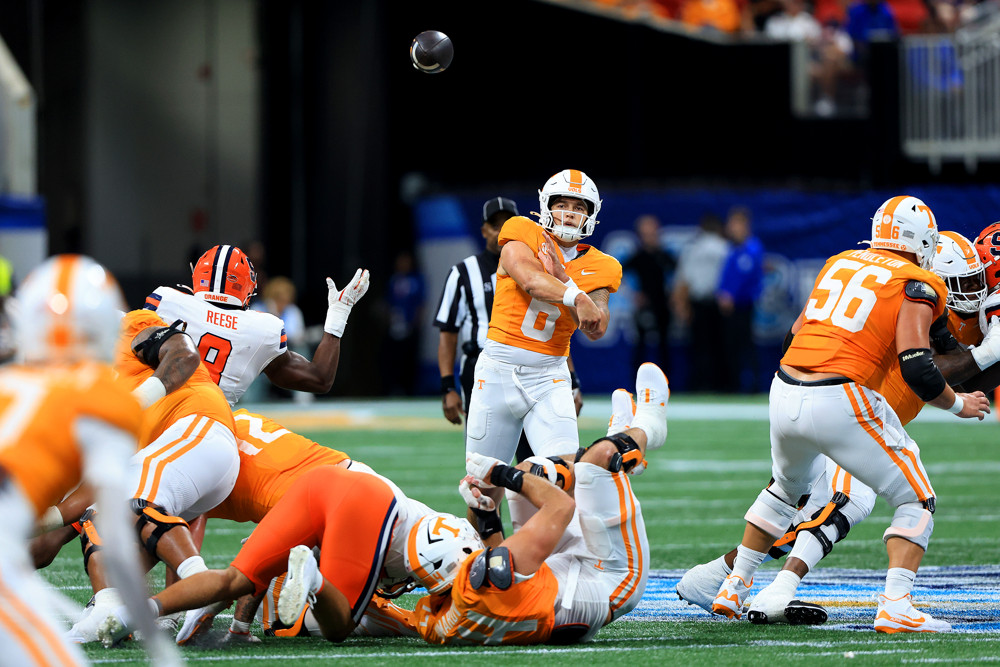
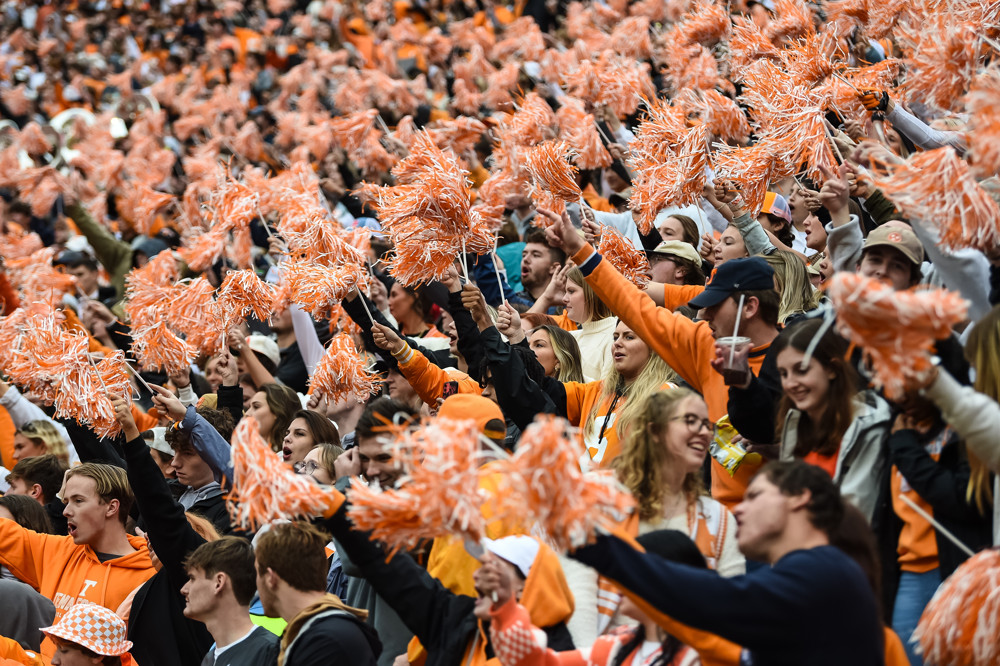
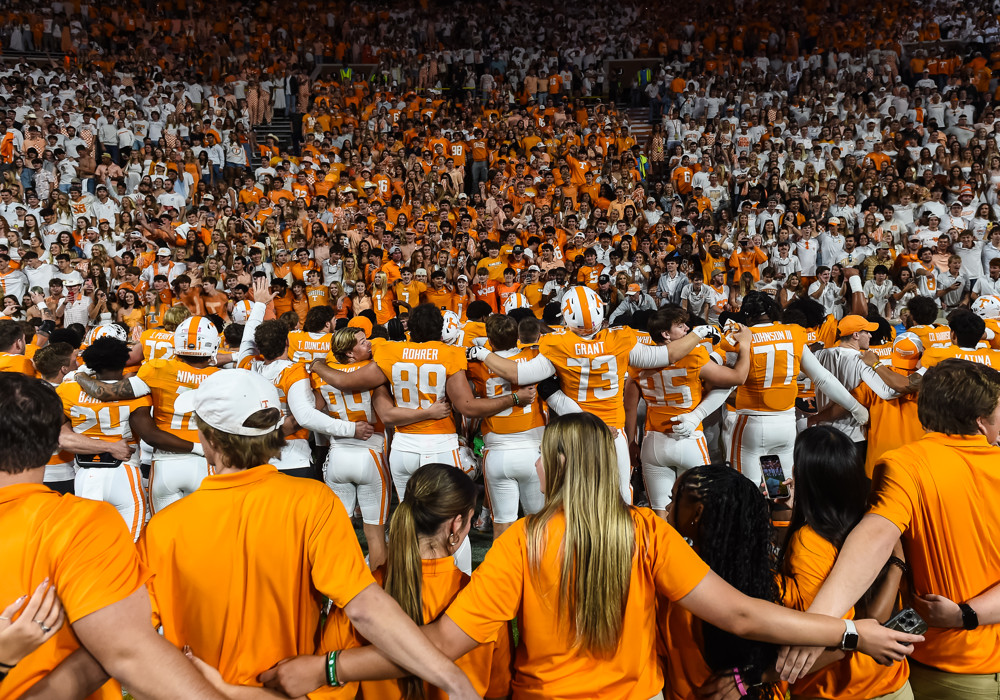
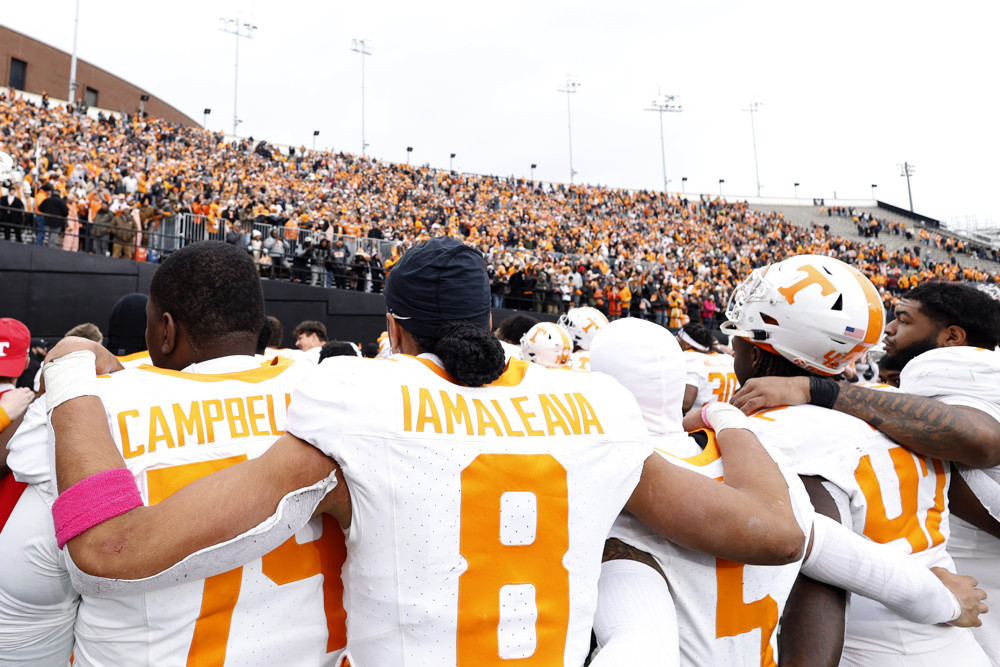
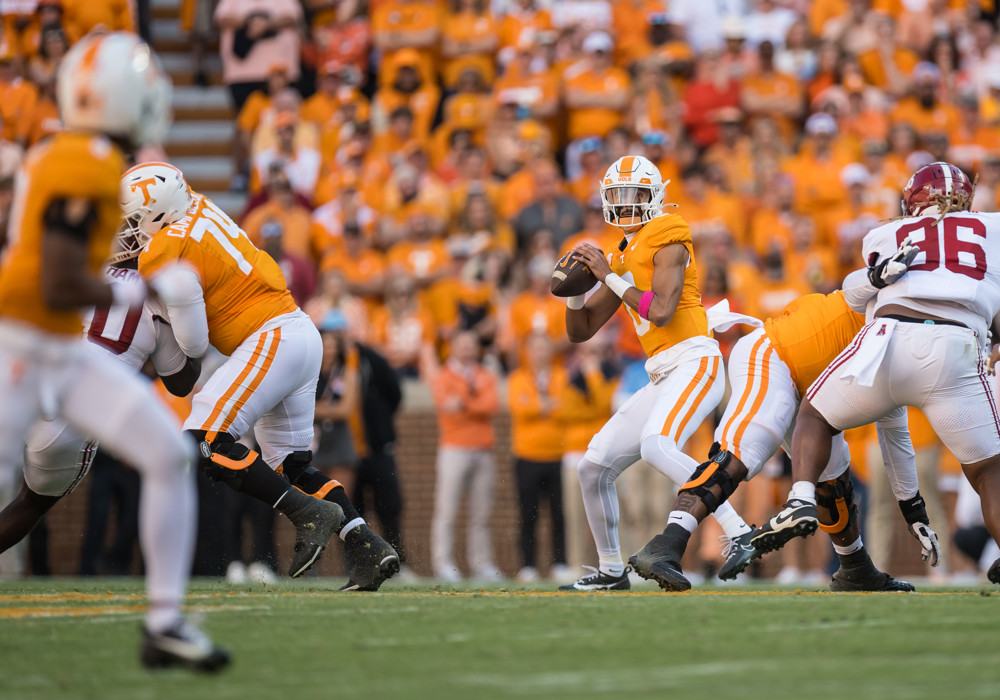
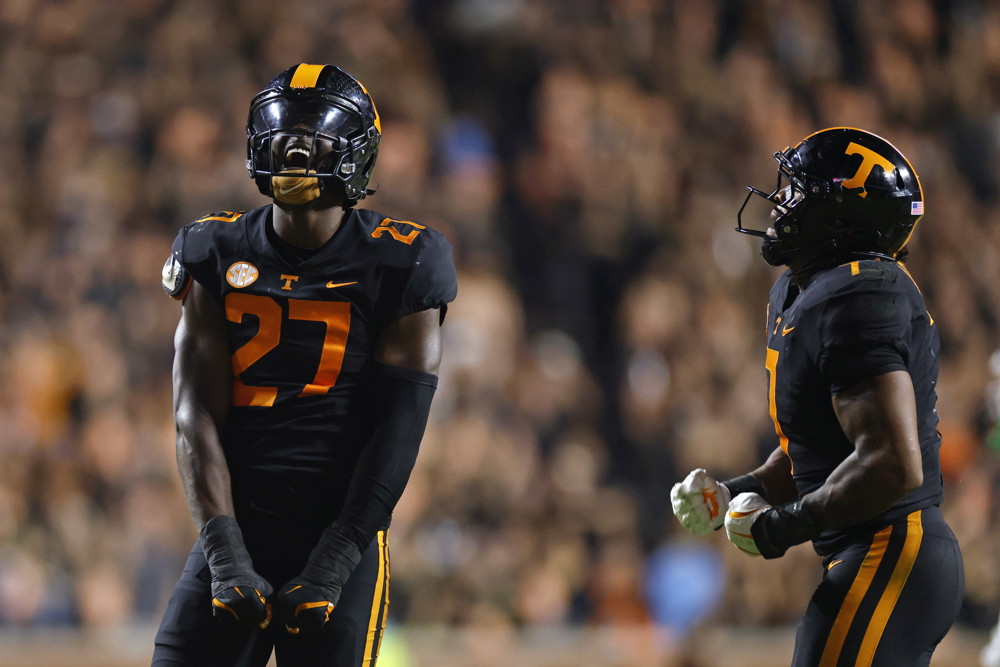
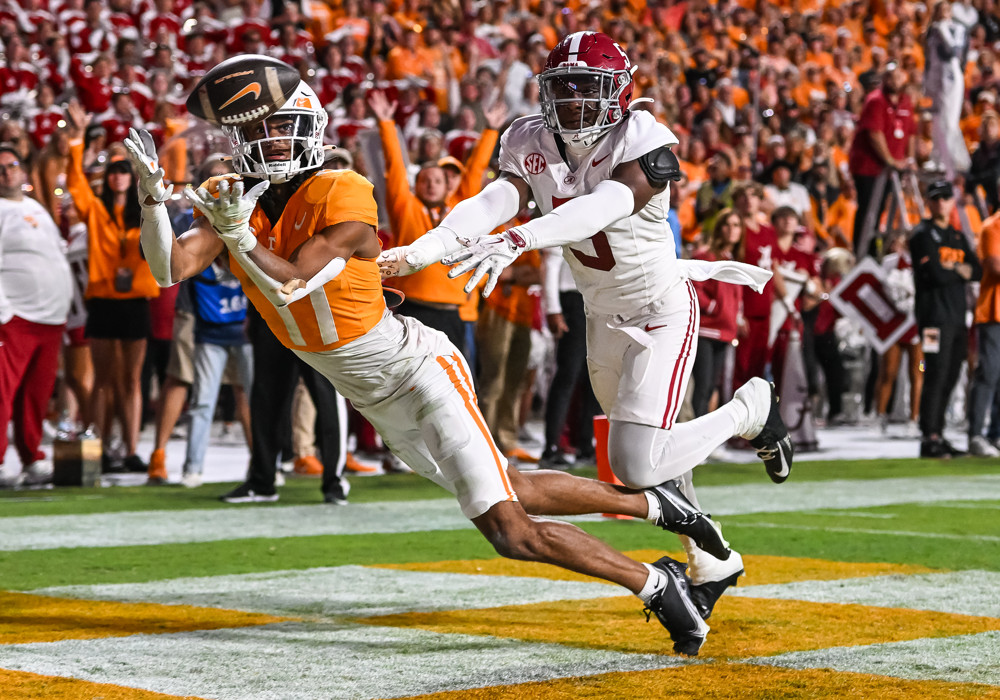
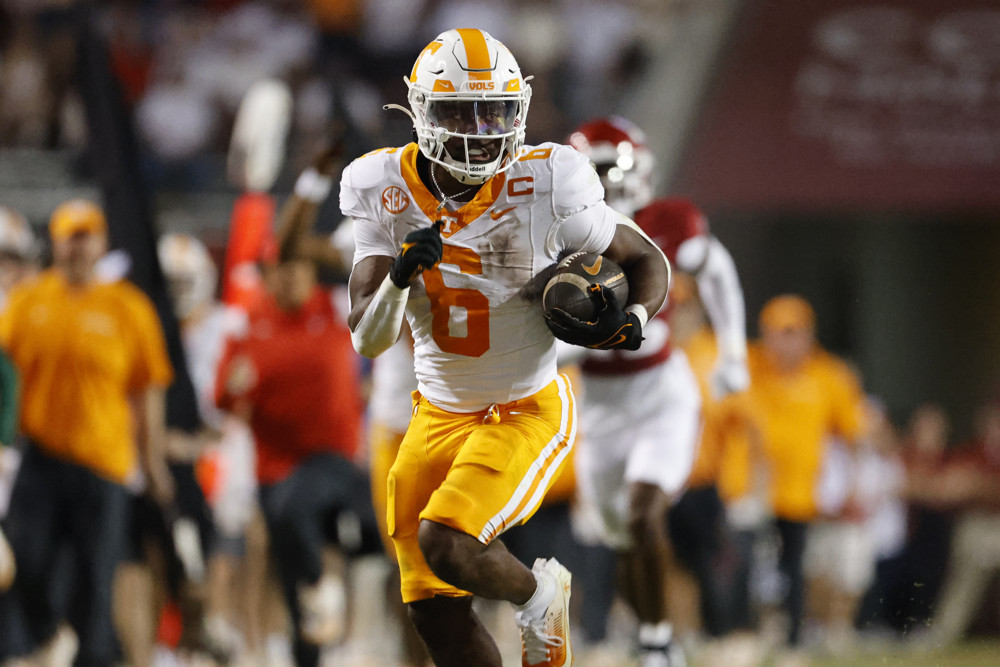
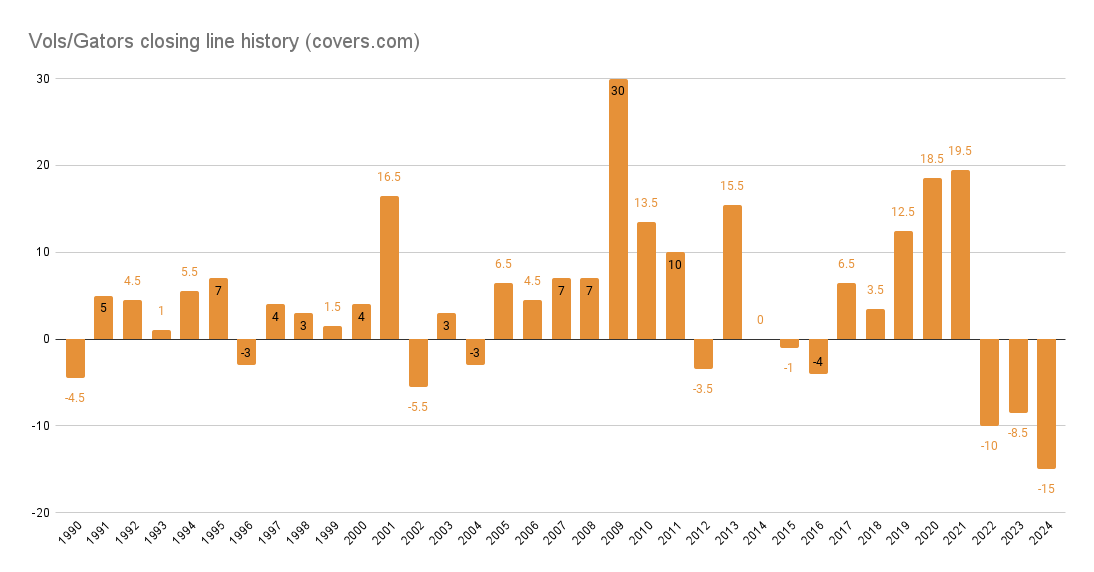
You must be logged in to post a comment.